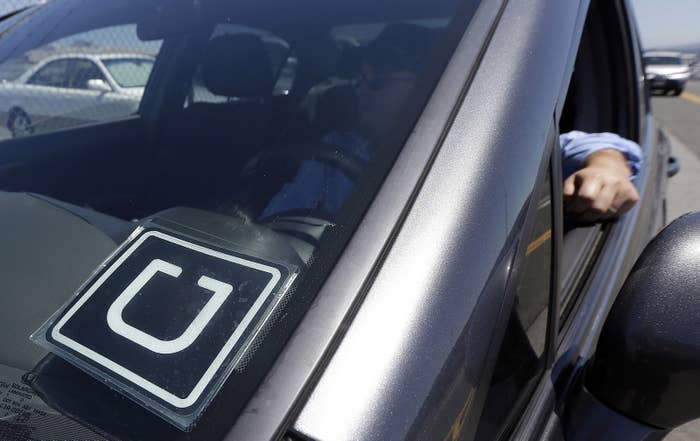
Some Uber drivers now have the option to buy insurance that protects them from the unexpected cost of getting injured on the job.
Uber will be charging customers in eight states an extra 5 cents per mile to cover the fees for personal injury insurance as part of an eight-state pilot program. The cost to drivers will be 3.75 cents per mile.
The move follows the creation of a similar program in the UK, where Uber and other gig economy companies have been under fire of late for their treatment of workers.
In the United States, the cost of a workplace injury is typically covered by an individual's employer via worker's compensation and disability insurance. Because Uber drivers are independent contractors, not employees, the ride-hail company isn't required to offer these types of insurance coverage. Instead, with this new plan, Uber is shifting the cost of coverage to consumers, and allowing drivers to choose whether they pocket the extra cash or use it to pay for insurance.
The optional pilot program will operate via insurance companies Aon and OneBeacon in Illinois, Massachusetts, South Carolina, West Virginia, Arizona, Oklahoma, Pennsylvania, and Delaware, and will pay out up to $1 million for medical expenses, up to half of a driver's average weekly earnings, and a maximum of $150,000 in survivor benefits.
"We believe drivers should have a low-cost option to protect themselves and their families against rare and unforeseen accidents that prevent them from working," said Uber Head of Safety and Insurance Gus Fuldner.
Though stories like the one about an Uber driver who lost his legs in a car accident and was unable to continue working have been used to galvanize anti-Uber driver strikes in the past, it's unclear how many drivers would actually sign up for insurance rather than take the extra money.
The failure of companies like Uber to provide workers with the same benefits and protections that traditional employees receive has for years been one of the chief criticisms of the gig economy. More recently, companies like cleaner-on-demand startup Handy have worked with legislators to propose a portable benefits system, through which individual workers and the various platforms they work for would jointly pay into a single fund that could be used to cover the cost of things like health insurance or time off work due to injury.
But traditional labor groups see these efforts as an attempt by the industry to continue side-stepping the full cost of protecting and insuring the on-demand workforce.
National Employment Law Project Director Rebecca Smith called Uber's personal injury insurance pilot program an "attempt to shore up its faltering image" in an email statement circulated Tuesday.
“Instead of paying workers’ compensation premiums to cover all of its workers, as responsible businesses do, Uber will charge drivers for the medical care and time-loss benefits that the rest of us get by virtue of working at a job," the statement reads. “What will it take for Uber to stop the end-runs and other shenanigans and finally act like a responsible employer? If Uber valued its workers, it would simply pay its workers’ compensation premiums and cover all of them."
